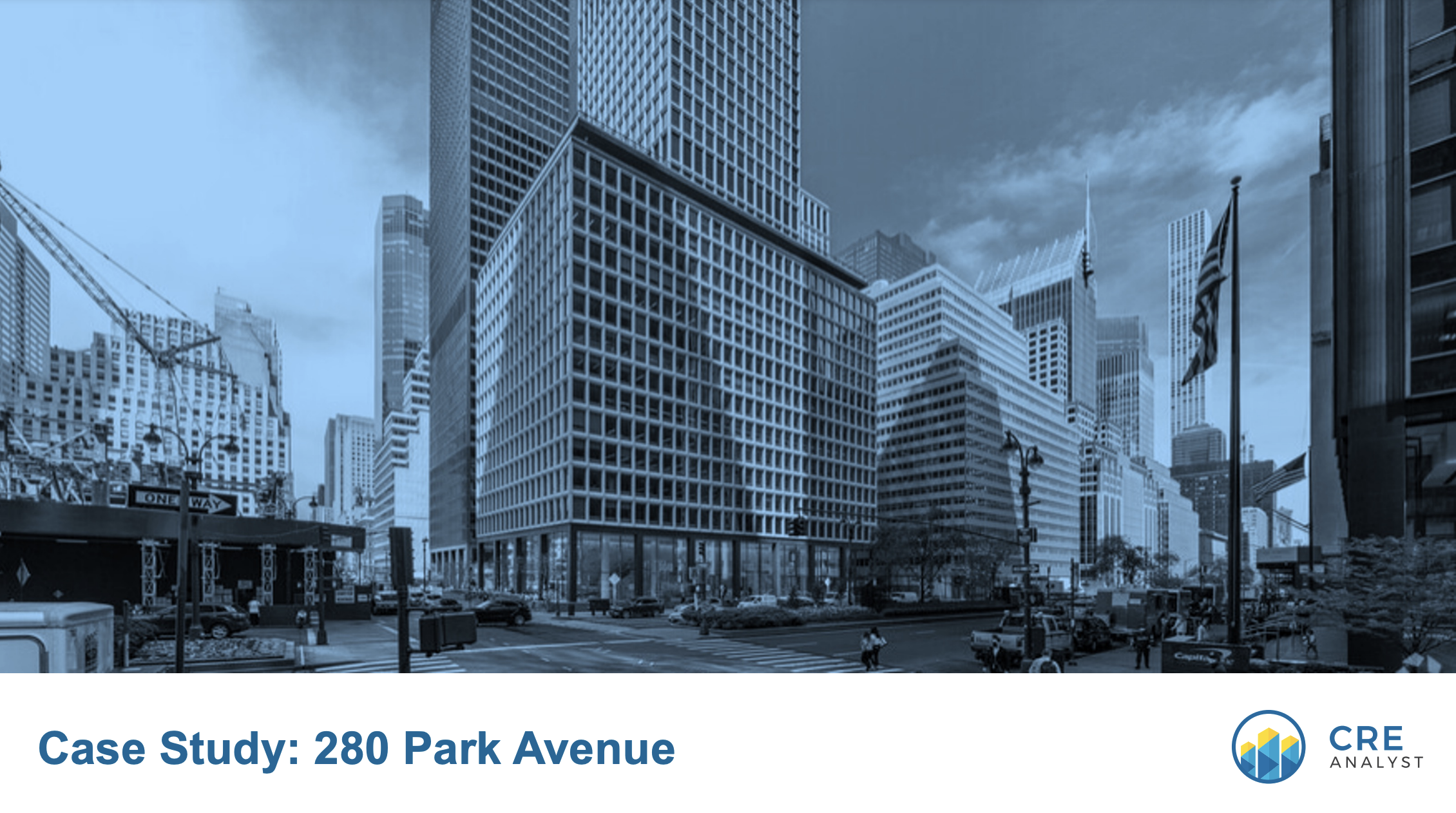
This case study has a lot of red flags: $1B+ loan on NYC office, floating rate debt, maturity default. ...but it might provide a silver lining.
--------------------
Glass half FULL
--------------------
-- 280 Park Avenue is a very well-located office building on Park Avenue in midtown Manhattan.
-- It's 90% leased and has continued signing leases at $100/SF+ rents.
-- It is owned by two of the largest NYC office landlords, Vornado and SL Green. They have invested significantly in the building in recent years.
-- The building sold for $1.3B at the peak pre-GFC froth.
----------------------
Glass half EMPTY
----------------------
-- The owners borrowed $1.075B in 2016.
-- It was due to mature in Sept 2023 but was recently transferred to special servicing.
-- The loan has about a 6.1% debt yield.
-- VNO and SLG are trading at 7-9% cap rates, which means they could probably only pay $700M to $900M for the building if it were for sale today (without hurting shareholder equity).
--------------------------
Three Possible Paths
--------------------------
1. Pay off the loan
In theory, VNO and SLG could wrestle up $1.1B to pay off the loan. We think there's virtually no chance of doing this though, since it would require about 10% of the companies' total equity in a terrible capital-raising environment.
2. Give the property back to the lender
The borrowers could also walk on the loan. They probably wouldn't buy it for about a 6% cap rate (or would they?) which is what it would amount to at the lender's current debt yield. But admitting defeat on this property, in a way, could be admitting defeat on nearly all of the REITs' properties, which probably wouldn't be well received by the market.
3. Modify the loan ("kick the can")
The special servicer doesn't want to foreclose on this property. If it does foreclose, it'll likely put it on the market, where VNO and SLG are about as good as a seller can hope for in today's office market. But the special servicer also has a fiduciary responsibility to the CMBS bondholders. i.e., to maximize value, which it could presumably do by getting a paydown from VNO/SLG, a renewed cap, and a new maturity date.
What do you think VNO/SLG will do?
What would you do?








COMMENTS